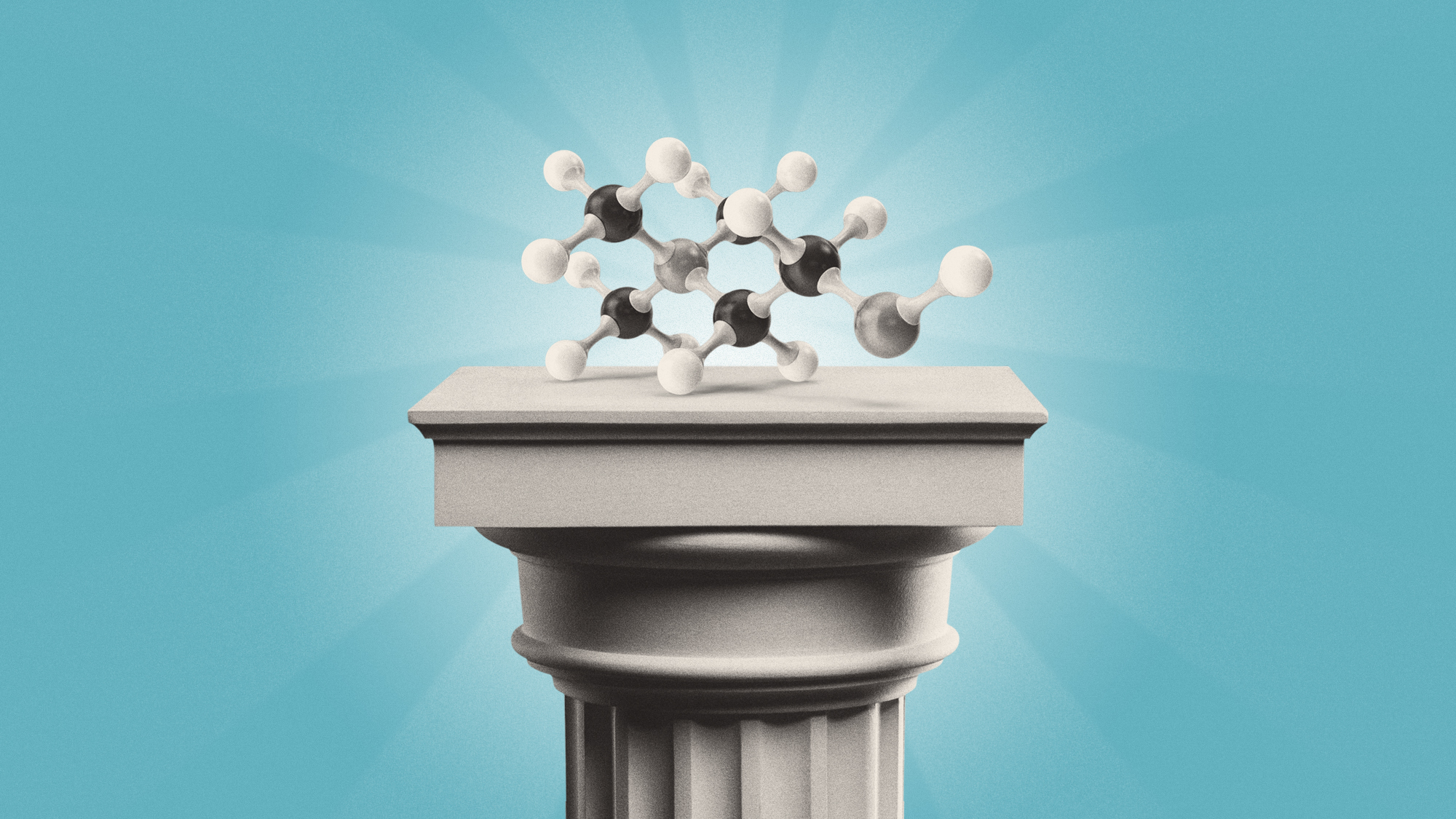How the brain changes during pregnancy
'Baby brain' has some scientific basis but not in the way we first thought

A free daily email with the biggest news stories of the day – and the best features from TheWeek.com
You are now subscribed
Your newsletter sign-up was successful
So many things change for a woman during pregnancy – and one of them could be her brain.
New research suggests that "mommy brain" could be "a real thing", said The Washington Post, but the process is quite at odds with the "pop culture conception" of young mothers becoming "cognitively fuzzy and absent-minded".
So what are the changes that occur, why do they happen and what does this discovery mean?
The Week
Escape your echo chamber. Get the facts behind the news, plus analysis from multiple perspectives.

Sign up for The Week's Free Newsletters
From our morning news briefing to a weekly Good News Newsletter, get the best of The Week delivered directly to your inbox.
From our morning news briefing to a weekly Good News Newsletter, get the best of The Week delivered directly to your inbox.
'Sweeping reorganisation'
The brain undergoes a "sweeping reorganisation" when a woman is expecting a baby, said The Guardian, and few areas are untouched by the process. Regular MRI scans from before conception until two years after childbirth revealed "widespread reorganisation" in the mother's brain, said the paper.
Some regions of the brain, "especially those involved in social and emotional processing", got smaller, possibly "undergoing a fine-tuning process in preparation for parenting", said The New York Times.
People can "bristle" when they hear that "grey matter volume decreases in pregnancy", said Professor Emily Jacobs, a researcher on the study from the University of California, Santa Barbara. But this change "probably reflects the fine tuning of neural circuits, not unlike the cortical thinning that happens during puberty".
Jacobs compared this process to Michelangelo's masterpiece, "David". "You start off with this chunk of marble, and you chip away – that pruning can reveal the underlying beauty," she said.
A free daily email with the biggest news stories of the day – and the best features from TheWeek.com
While grey matter decreases, there were significant increases in white matter, the nerve fibres that connect neurons and help different brain regions communicate. All of this remodelling, or neuroplasticity, took place across the brain, at three times the rate seen in eight non-pregnant women who also had their brains scanned over the same period.
Maternal fine-tuning
This "probably enables the onset of certain maternal behaviours", said New Scientist. This has already been seen in rodents, where increases in steroid hormones during pregnancy "trigger brain changes" that "enhance the mother's sensitivity to smells and sounds from her pups".
A similar process may be happening in humans, according to several studies. One team found that the scale of change in grey matter volume corresponds with the extent of parental attachment.
'Linchpin of human existence'
Pregnancy is a "linchpin of human existence", said The Washington Post, but the maternal brain has been "understudied and underappreciated" until now. Several experts have welcomed the progress – Gina Rippon, from Aston University in Birmingham, told The Guardian it was "a truly heroic" study.
Some of the brain developments were still present two years after childbirth, "hinting at cellular changes in the organ", which could be permanent. Therefore, said Dr Elizabeth Chrastil, from the University of California, Irvine, the study "really opens up more questions than it answers" and "we're really just starting to scratch the surface".
New studies mean that deeper scratching is already under way. A greater understanding of the brain's "remodelling" could explain several pregnancy-related behaviours, said New Scientist, as well as helping people at risk of mental health conditions.
A new series of scans is now being collected from other pregnant women to explore the dangers of postnatal depression and the connection between pre-eclampsia and dementia. Scientists also want to understand why pregnancy can reduce migraines and indications of multiple sclerosis.
Chas Newkey-Burden has been part of The Week Digital team for more than a decade and a journalist for 25 years, starting out on the irreverent football weekly 90 Minutes, before moving to lifestyle magazines Loaded and Attitude. He was a columnist for The Big Issue and landed a world exclusive with David Beckham that became the weekly magazine’s bestselling issue. He now writes regularly for The Guardian, The Telegraph, The Independent, Metro, FourFourTwo and the i new site. He is also the author of a number of non-fiction books.
-
 What to know before filing your own taxes for the first time
What to know before filing your own taxes for the first timethe explainer Tackle this financial milestone with confidence
-
 The biggest box office flops of the 21st century
The biggest box office flops of the 21st centuryin depth Unnecessary remakes and turgid, expensive CGI-fests highlight this list of these most notorious box-office losers
-
 The 10 most infamous abductions in modern history
The 10 most infamous abductions in modern historyin depth The taking of Savannah Guthrie’s mother, Nancy, is the latest in a long string of high-profile kidnappings
-
 ‘Zero trimester’ influencers believe a healthy pregnancy is a choice
‘Zero trimester’ influencers believe a healthy pregnancy is a choiceThe Explainer Is prepping during the preconception period the answer for hopeful couples?
-
 ‘Longevity fixation syndrome’: the allure of eternal youth
‘Longevity fixation syndrome’: the allure of eternal youthIn The Spotlight Obsession with beating biological clock identified as damaging new addiction
-
 Scientists are worried about amoebas
Scientists are worried about amoebasUnder the radar Small and very mighty
-
 Metal-based compounds may be the future of antibiotics
Metal-based compounds may be the future of antibioticsUnder the radar Robots can help develop them
-
 Deaths of children under 5 have gone up for the first time this century
Deaths of children under 5 have gone up for the first time this centuryUnder the radar Poor funding is the culprit
-
 Stopping GLP-1s raises complicated questions for pregnancy
Stopping GLP-1s raises complicated questions for pregnancyThe Explainer Stopping the medication could be risky during pregnancy, but there is more to the story to be uncovered
-
 Choline: the ‘under-appreciated’ nutrient
Choline: the ‘under-appreciated’ nutrientThe Explainer Studies link choline levels to accelerated ageing, anxiety, memory function and more
-
 RFK Jr. sets his sights on linking antidepressants to mass violence
RFK Jr. sets his sights on linking antidepressants to mass violenceThe Explainer The health secretary’s crusade to Make America Healthy Again has vital mental health medications on the agenda